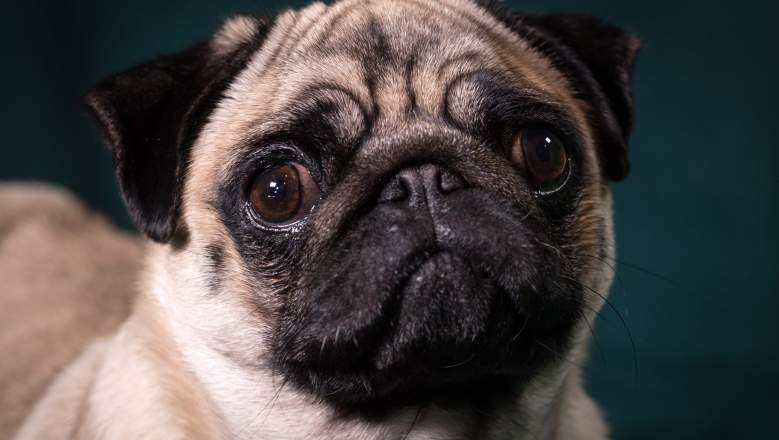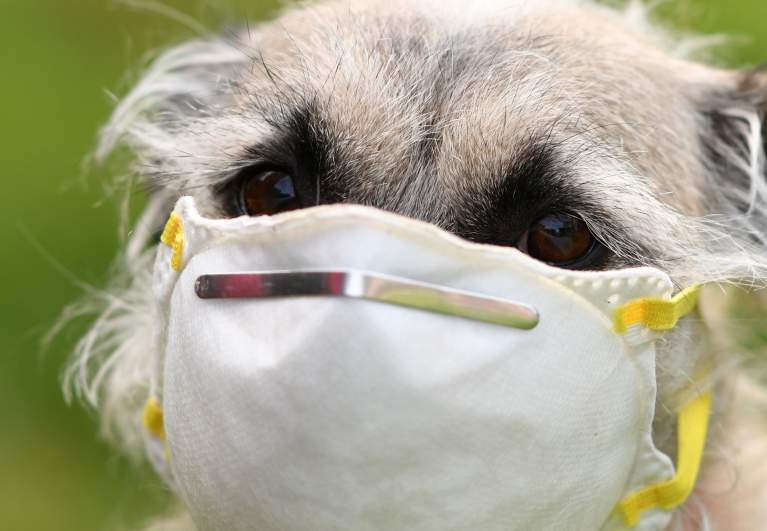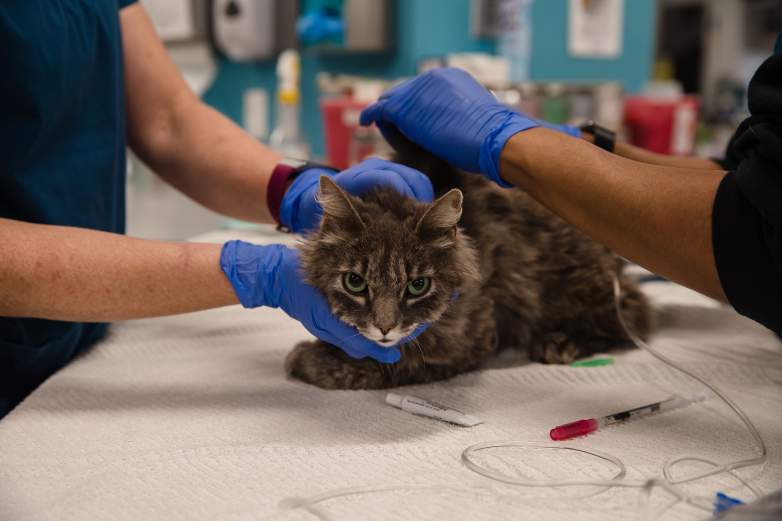
For the first time in the U.S., a dog has tested positive for COVID-19. A North Carolina pug named Winston was tested as part of a Duke University study after researchers asked for volunteers who had tested positive for COVID-19 or had been exposed to someone with the virus. They also asked those volunteers if they could test their pets.
According to WRAL, the dog’s owner, Dr. Heather McLean, who is a pediatrician at Duke, was tested along with her family, their two dogs and their cat as part of the study. McLean along with her husband and son tested positive for COVID-19, and so did one dog, Winston. However, McLean’s daughter, their cat and their other dog did not have the virus.
McLean told WRAL, “Hopefully we’ll learn more through the research study, and I think because there’s not a lot of studies and sampling pets, we just don’t know yet. My advice is just not to get too worried about it.”
The Lead Investigator of the Study Says They Still Don’t Know Much About Animals’ Exposure to Coronavirus

GettyAn illustration photo shows Ziggie the dog wearing a mask put on her face by her owner in Los Angeles on April 5, 2020. After a tiger in the Bronx zoo tested positive for COVID-19, the zoo emphasized that there is “no evidence that animals play a role in the transmission of COVID-19 to people other than the initial event in the Wuhan market, and no evidence that any person has been infected with COVID-19 in the U.S. by animals, including by pet dogs or cats.”
The lead investigator of the study, Dr. Chris Woods, told CBS in a statement, “To our knowledge, this is the first instance in which the virus has been detected in a dog. Little additional information is known at this time as we work to learn more about the exposure.” Heavy has reached out for more information from Woods and is waiting to hear back.
The study by Woods and his colleagues is called the “MESSI study (Molecular and Epidemiological Study of Suspected Infection).” They wrote of the study, “The main goal of our research is to better understand how the body responds to particular types of infection and to use that information to develop infection biomarkers.”
Part of that study includes testing pets. Researchers looking for volunteers on the website said they are “interested in collecting oral/snout samples from pets to understand what role they play in transmission.”
2 Cats Tested Positive for COVID-19 in New York Earlier This Month

GettyA cat that is not eating or drinking is looked over at the clinic at the San Diego Humane Society on April 21, 2020. Two cats in New York were the first pets in the U.S. to test positive for the new coronavirus, officials said April 22.
The CDC announced that two cats in different parts of New York State were found to be infected with COVID-19 on April 22. In one case the owner of the infected cat was not found to have the virus. In the second case, the owner was COVID-19 positive but another cat in that house had not contracted the virus.
According to the CDC, “there is no evidence that pets play a role in spreading the virus in the United States. Therefore, there is no justification in taking measures against companion animals that may compromise their welfare. Further studies are needed to understand if and how different animals, including pets, could be affected.” The CDC maintains that using COVID-19 tests on animals does not reduce the availability of tests for humans.
The agency recommends what amounts to social distancing for pets until more is understood about their role in transmitting COVID-19. They say don’t let your pets interact with other pets, which may mean keeping cats inside; keep dogs on a leash and six feet away from other animals and people; and keep your dog out of dog parks and away from crowds.
If you find out you have COVID-19, the CDC says you should avoid interaction with your pets and ideally have someone else care for your pet while you are ill. If that’s not an option they say wear a mask and wash your hands before you touch your pet.
READ NEXT: Study: Coronavirus Can Linger in the Air for Hours in Certain Places